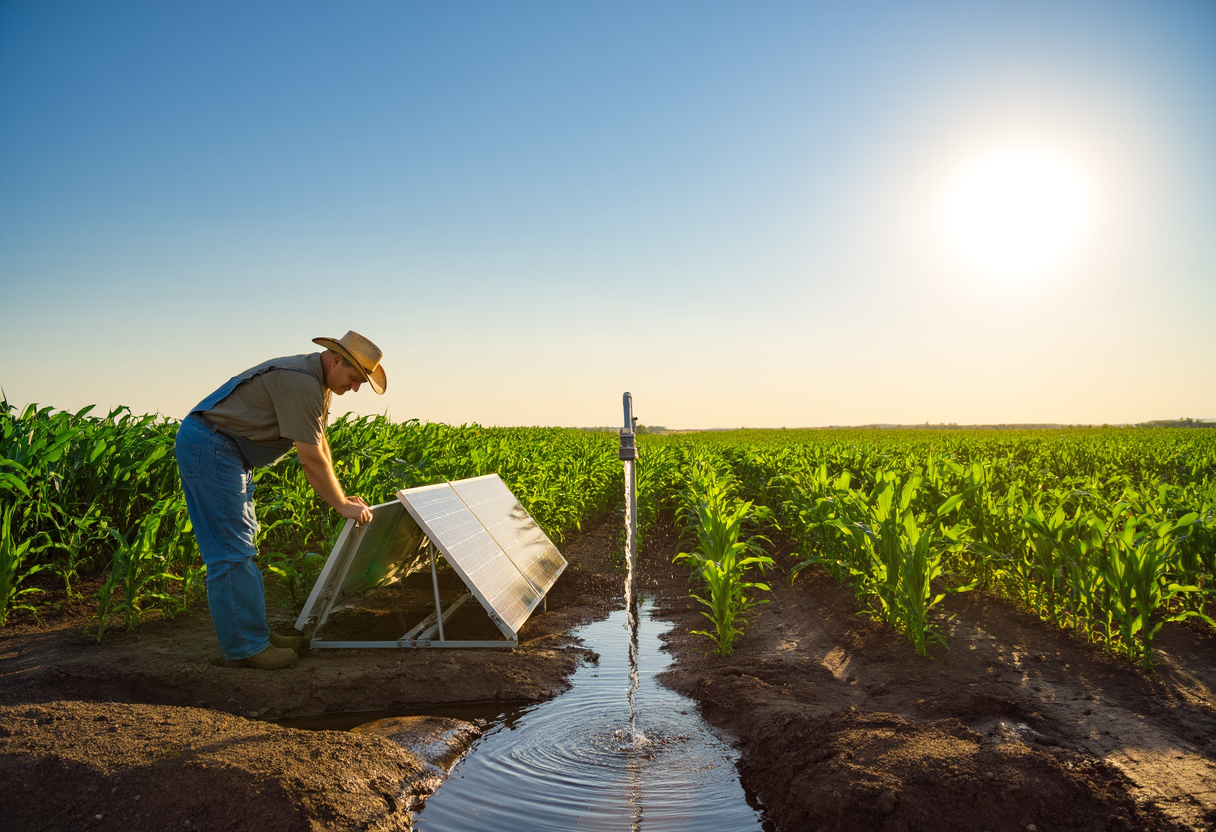The Future of Farming: Harnessing Solar-Powered Water Pumps for Sustainable Agriculture
As agriculture faces unprecedented challenges due to climate change, Solar-Powered Water Pumps present a revolutionary solution. This article explores how these innovative pumps enhance water accessibility, reduce energy costs, and promote eco-friendly farming practices, making them essential for sustainable agriculture. By integrating renewable energy sources, farmers can conserve resources and increase crop yields efficiently.
Introduction to Solar-Powered Water Pumps
Solar-powered water pumps are transforming the landscape of sustainable agriculture. These pumps utilize renewable energy from the sun to extract groundwater, making them both an economical and environmentally friendly choice for farmers. When combined with advanced solar technology, Solar-Powered Water Pumps offer an efficient method to irrigate crops, especially in regions facing water scarcity. The integration of technology and sustainability is crucial to addressing the growing concerns over conventional irrigation systems that heavily rely on nonrenewable energy sources.
Advantages of Solar-Powered Water Pumps
The primary advantage of Solar-Powered Water Pumps lies in their cost-effectiveness. By harnessing solar energy, farmers can significantly reduce their electricity expenses. This is especially beneficial for smallholder farmers who often face financial constraints. Additionally, Solar-Powered Water Pumps require minimal maintenance compared to diesel or electric pumps, which can be costly to repair. Furthermore, these pumps are ideal for remote areas without reliable grid access, ensuring that even the most isolated farms can benefit from effective irrigation.
Environmental Impact of Solar-Powered Water Pumps
Adopting Solar-Powered Water Pumps not only benefits farmers but also positively impacts the environment. By reducing reliance on fossil fuels, these pumps contribute to lower greenhouse gas emissions. This is critical in the fight against climate change, as agriculture is one of the significant contributors to global warming. Additionally, Solar-Powered Water Pumps aid in groundwater management, helping maintain water levels and preventing over-extraction. By promoting sustainable practices, farmers can ensure long-term viability for both their operations and the ecosystem.
Challenges Facing Solar-Powered Water Pump Adoption
While Solar-Powered Water Pumps have numerous advantages, challenges remain in their widespread adoption. High initial costs can be a barrier, deterring many farmers from making the switch. Moreover, the effectiveness of these pumps can vary based on geographic location and sunlight availability. Therefore, incentives and accessible financing options are essential to encourage farmers to invest in this technology. Additionally, education and training on the installation and maintenance of these pumps will help ensure their successful integration into farming practices.
Real-Life Applications and Success Stories
Many farmers worldwide are already reaping the benefits of Solar-Powered Water Pumps. For instance, in regions like Sub-Saharan Africa, farmers have reported increased crop yields and reduced irrigation costs after transitioning from traditional systems. These success stories highlight the potential for Solar-Powered Water Pumps to revolutionize agricultural practices globally. The ability to irrigate efficiently even in arid regions can lead to food security and improved livelihoods for countless families. It is these real-life applications that inspire further investment in solar technology within agriculture.
The Future of Agriculture with Solar-Powered Water Pumps
Looking ahead, the future of agriculture seems promising with the integration of Solar-Powered Water Pumps. As technology continues to advance, we can expect more efficient, cost-effective solutions that will further enhance farming sustainability. Governments and private sectors should collaborate to promote the development and accessibility of these innovative systems. The shift towards renewable energy sources is not merely a trend; it is an imperative step toward safeguarding our planet while ensuring food production can meet the demands of a growing population.
